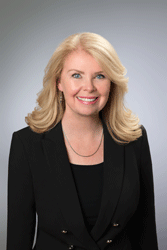Physicians: Practice What You Preach
 It’s often said that doctors make the worst patients. One would suppose that, given their training and knowledge, physicians would be well inclined to take appropriate steps to keep themselves healthy whether they are patients or not. But research detailing high rates of physician burnout suggests that this is hardly the case. Dr. Hilary McClafferty, an Associate Professor in the Department of Medicine at the University of Arizona and an American Board of Physician Specialties® (ABPS) Diplomate in Integrative Medicine, writes extensively about the link between physician health and wellness and patient outcomes. She calls for a distinct shift in how the medical community views this topic.
It’s often said that doctors make the worst patients. One would suppose that, given their training and knowledge, physicians would be well inclined to take appropriate steps to keep themselves healthy whether they are patients or not. But research detailing high rates of physician burnout suggests that this is hardly the case. Dr. Hilary McClafferty, an Associate Professor in the Department of Medicine at the University of Arizona and an American Board of Physician Specialties® (ABPS) Diplomate in Integrative Medicine, writes extensively about the link between physician health and wellness and patient outcomes. She calls for a distinct shift in how the medical community views this topic.
While all doctors would certainly benefit from taking better care of themselves, says Dr. McClafferty, young physicians entering a medical culture that pays scant attention to physician self-care are the ones who stand to gain the most. After all, studies show that symptoms of burnout and depression start as early as medical school. It makes sense, therefore, that for lasting self-care improvements among individual physicians to occur, cultural and institutional changes should happen simultaneously.
If we assume that leaders of medical organizations expect doctors on their staff to provide the best health care possible, it follows that fostering workplace values that promote physician well-being should be a top priority. Dr. McClafferty points to an article by Maslach and Leiter as an excellent guide on how to embark on a program of improvements. In summary, low rates of physician burnout are associated with favorable organizational factors such as a sense of personal control, absence of role conflict, fair treatment, social support, the alignment of workplace and individual values, and appropriate rewards.
In terms of cultural progress, Dr. McClafferty, formerly a practicing pediatrician in emergency medicine, cites the Pediatric Burnout-Resilience Study Consortium as an exemplary initiative, with more than 30 pediatric residency programs committed to their trainees’ well-being. She says that further progress can be made if young doctors were introduced to evidence-based coping skills – mindfulness practice, for instance – which can help them effectively manage the challenges of a medical career. Over time, as more doctors attend to their own health, the medical community may grow to view self-care care as a normal practice.
Of course, lifestyle choices also play a significant role in physician well-being, as they can help or hinder how doctors deal with the stress that can lead to burnout. Since doctors are experts on their own lives, Dr. McClafferty says, they will be able to discern whether any behaviors need to be changed to attain a more balanced life. Areas to focus on in a self-case assessment should include fundamental concerns like nutrition, sleep, physical activity, social connections, and recreational activities. Dr. McClafferty also encourages physicians to schedule time for self-reflection, a moment to breathe and relax, to prepare oneself mentally for the challenges ahead. The calm and resiliency engendered by self-reflection can then benefit the entire workplace when doctors become models of positive change.
“We need to look out for each other as physicians,” Dr. McClafferty says. “An integrative medicine approach provides an effective template to do this.”
Integrative medicine, according to the American Board of Integrative Medicine (ABOIM), makes use of all evidence-based therapeutic approaches, healthcare professionals, and disciplines to achieve optimal health and well-being. The ABPS offers integrative medicine certification through the ABOIM. To learn more about the ABOIM, contact the ABPS today.






